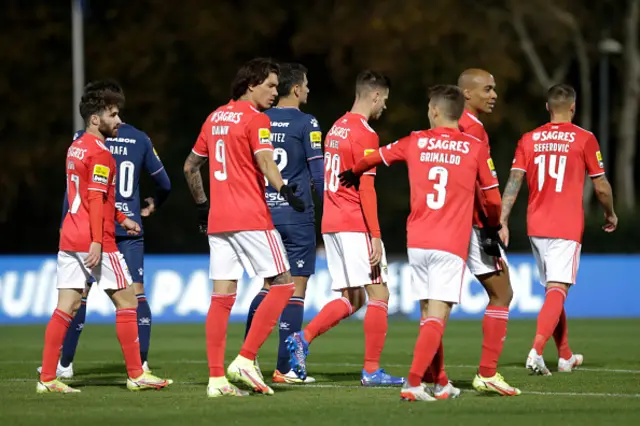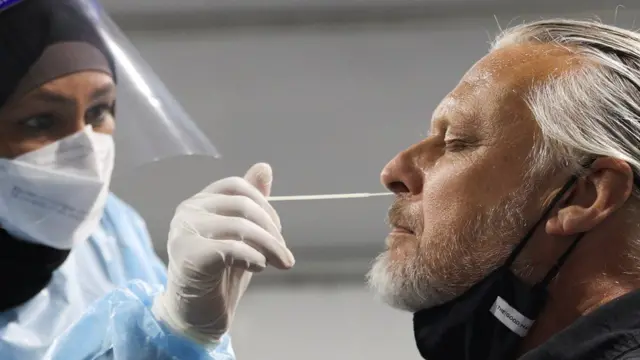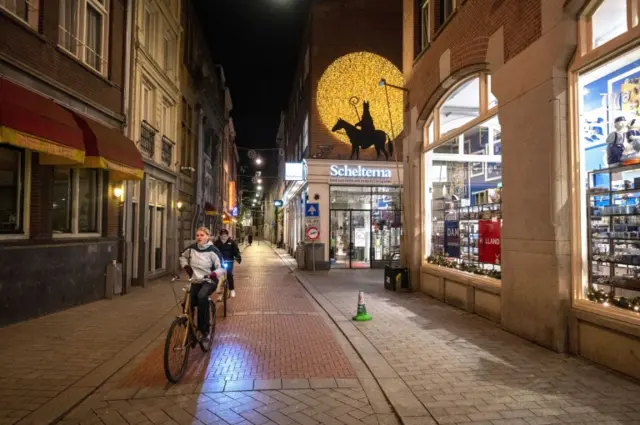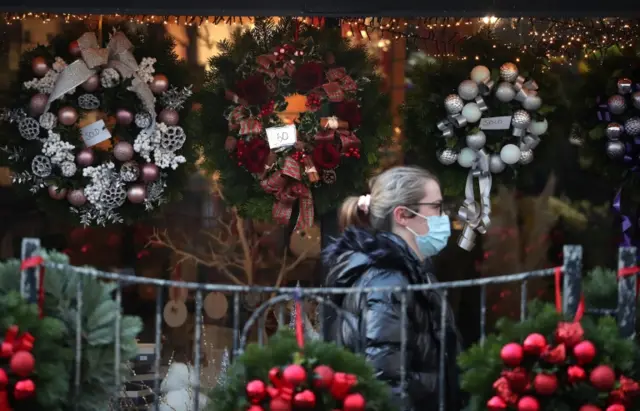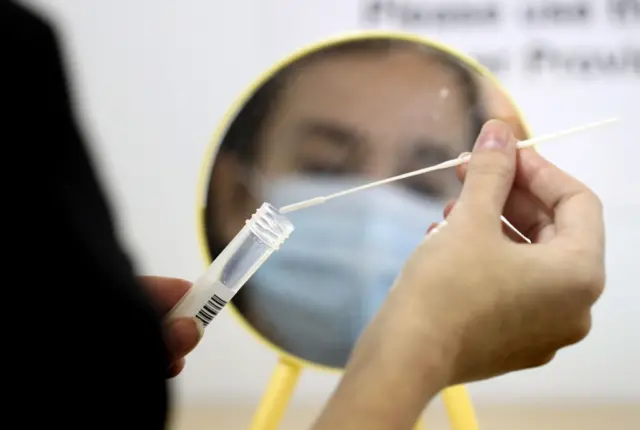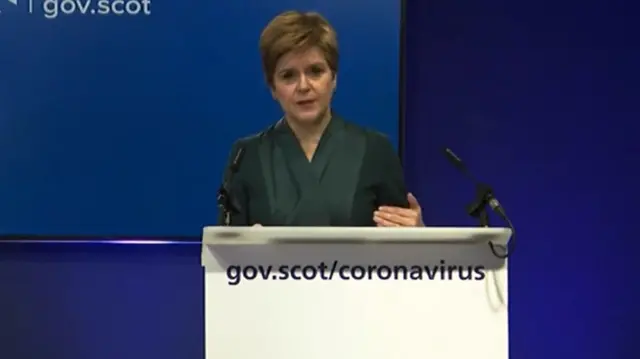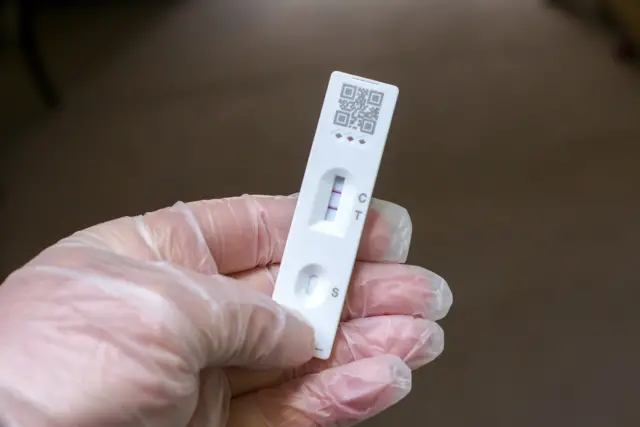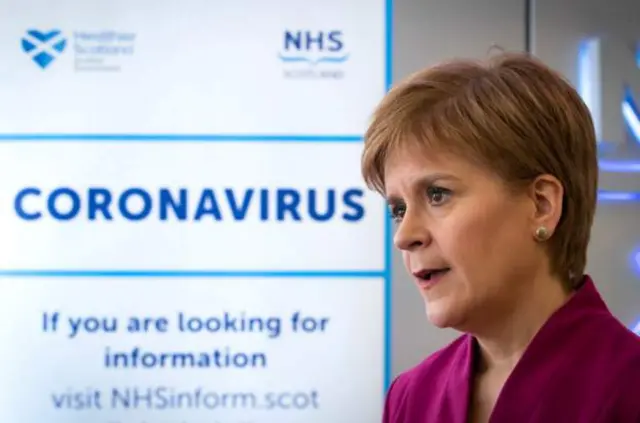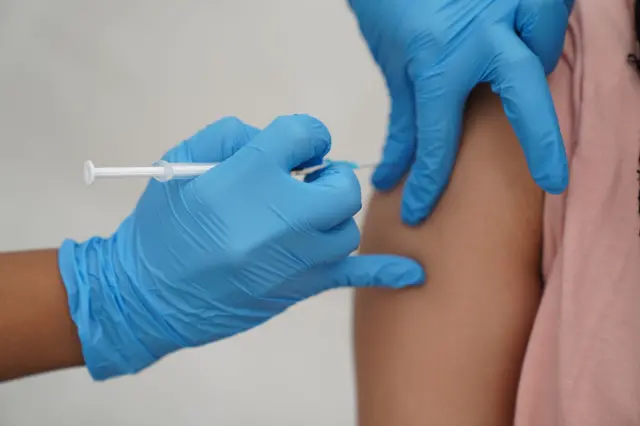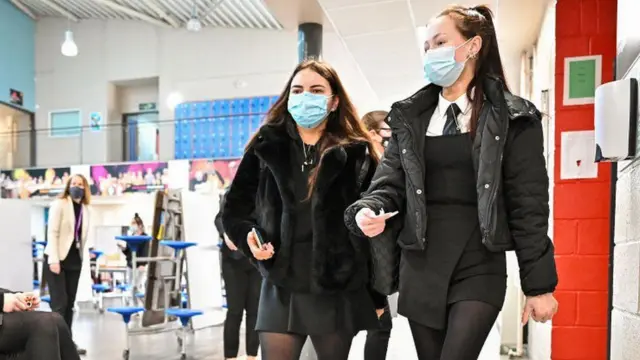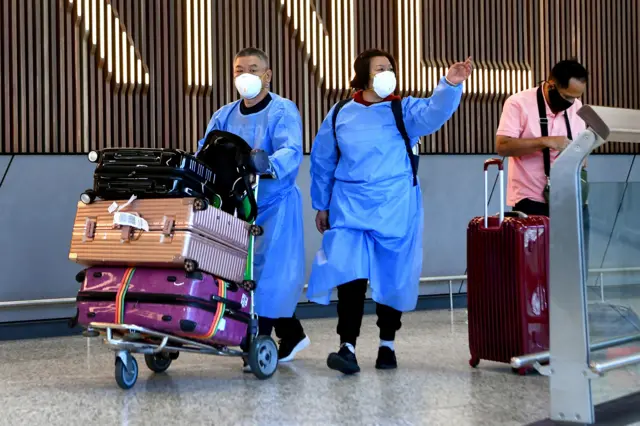What did we learn from Sturgeon's press conference?published at 12:00 GMT 29 November 2021
If you're just joining us, here's what we learned from First Minister Nicola Sturgeon's press conference following the six cases of Omicron identified in Scotland:
- Sturgeon and Welsh First Minister Mark Drakeford have written to Boris Johnson calling for stricter travel rules
- The politicians have called for an additional day eight test for all UK arrivals on top of the current test on day two
- They say an emergency Cobra meeting must be held to promote a 'four nations' approach to the Omicron variant
- There is some early evidence of community transmission of Omicron, with some of the cases having no travel history or links to anyone who does
- But there is no evidence this transmission is sustained or widespread
- Additional testing will be carried out in Scotland to identify more cases
- Sturgeon describes the variant as the "most challenging development" in the pandemic for some time
- However, she adds that people should not change their Christmas plans
If you'd like to read the full proposals from Wales and Scotland, the BBC's Economics editor Faisal Islam has obtained a copy of the letter here:
Allow X content?
This article contains content provided by X. We ask for your permission before anything is loaded, as they may be using cookies and other technologies. You may want to read X’s cookie policy, external and privacy policy, external before accepting. To view this content choose ‘accept and continue’.
